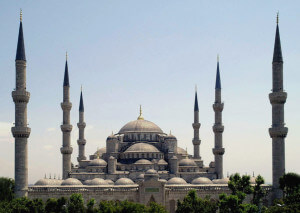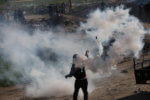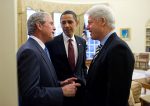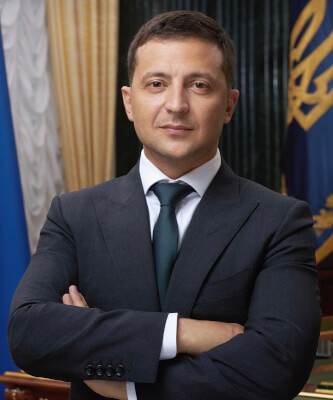By Abdennour Toumi

Ankara – Turkey — The recent attacks in Paris are but one act in a series of serious threats posed by “homegrown” radicalism from young immigrant Muslim dissenters. This menace has forced Western domestic intelligence to deal with a case that demands vigilant law enforcement on one hand and a general review of Muslim leaders in the West on the other. There is a pressing need to initiate and educate these young devoted Muslims and inform the majority of their fellow citizens in the West regarding the virtuous values of Islam.
In this case Muslim leaders in the West need to open the gate of Islamic jurisprudence (Beb el-Edjteehad) as an opportunity to explore this field of Islamic doctrine (el-Feq’h el-Islamee) and tackle the issue of jurisprudence.
In recent years this so-called “homegrown” terrorism has become all too real. Western authorities have shown themselves on guard realizing that the threat from radical Muslims is on the rise in the West.

For instance, in 2008 some Somali-American youths traveled from Minnesota to Mogadishu to join a radical group (Echabab movement) in Somalia. In 2009 Nedhal Hassan, an American army major, was charged with the killing of 13 soldiers and wounding of 32 others at Fort Hood, Texas. Then there was the attempted car bombing in Times Square which failed in 2010. In March 2012, Mohammed Merah initiated a series of three gun attacks targeting French soldiers and Jewish civilians in the cities of Montauban and Toulouse in southwestern France. In total seven people were killed, and five others wounded, four seriously. After a 30-hour siege the perpetrator was shot and killed by police in an apartment in downtown Toulouse.
This tragedy ended not unlike the Paris attacks whose perpetrators vanished only to be surrounded later by police in a warehouse in Paris suburbs. None of these events are isolated. Though Muslim radicalism is operational and in some cases organizational at the domestic level, it is connected to global radicalism. It demonstrates a “militancy” evolution launched on the premise of a global operation designed to recruit and carry out suicide attacks in the West, which in general, is the provenance of el-Qa’eda’s franchise and the ISO’s militant retaliation on Western targets.

The domestic radical Muslim phenomena represents a serious and expanding challenge for Western intelligence and Muslim community leaders as well. How does one know whether a person is a radical or not? For instance, recent cases in the U.S. have shown that these radicals are highly educated and derive from a middle-class family milieu living in the suburbs of American cities. Nonetheless, terrorism experts and domestic intelligence officials have warned about the threat posed by “homegrown” Muslim radicals of U.S. citizenship. They have cited examples from Britain’s experience, based on a combination of intelligence and cooperation from the local Muslim community in the U.K. before and after the London Metro bombings of 2005.
Some analysts believe Muslims in the U.K. are better integrated, educated and wealthier than their counterparts in France. Similarly, they believe that America’s “melting pot” of ethnicities and religions offers protection from internal radical strife. However, a new generation is emerging among the Muslim communities in the U.S., particularly radical young men using a simplistic justification for their acts derived from current U.S. foreign policy in the Middle East and North Africa, and being indoctrinated by radical preachers on YouTube and on-line chat rooms.
These modern tools are the extension of global terrorism by such means, so the “homegrown” terrorism becomes “glocal” (globalization with local considerations) as Dr. Mathieu Guidère defines it. U.S. officials have acknowledged the need to address the radical question posed by young American Muslims, and in 2011 the White House added combating homegrown terrorism to its national security strategy, a strategy that places law enforcement and close intelligence attention on suspected radicals.
In this context, the united efforts of FBI agents and local law enforcement, through outreach to the local Muslim community, were successful in preventing an attempted bombing of a public event in Portland, Oregon, by Mohammed Mahmoud in 2011. It is vital that Muslim community leaders control the message and avoid such reckless activities of the young who are putting an end to their dreams by their own hands.

Muslim Imams should focus their Friday Khotba (sermon) on the life of the Prophet Mohammed (Esseera Enabaouia) because these young people seem lost in the message that they bear and the faith in which they believe. The Prophet Himself, prosecuted by Mecca’s politics and financial establishment, sought refuge. He sent his companions to Ethiopia for a time before He received the revelation to immigrate to Medina.
(I offer this as an analogy to what el-Ansar (protectors) offered the Prophet and his companions when they arrived in Medina).
This historical element in the founding of the Islamic nation and state is a very important one to teach young Muslims, especially those living in the West, to let them understand that the West is still only at Medina’s stage…
Muslim leaders in the West should introduce a sociological approach to the founding of the Islamic nation and state established by the Prophet and his companions in Medina and introduce an educational curriculum in accordance with the socio-culture of the Western societies in which they live.
For instance, some Western countries welcome and embrace Islam and offs their support to Muslim communities. Germany is a clear example of reaching out to the local community in the aftermath of anti-Muslim sentiment. Americans also showed their support for the Somali community after the attempted terrorist act in Portland. Soon it is to be hoped the French will recover from the 2015 attacks and show their kindness again, but it all takes time.
In sum, Muslims can practice their faith in the West without paranoia, guilt or fear because they live in countries with laws and accountability. Muslims should urge their leaders to unite and initiate Edjteehad in order to curb these activities that are being committed by self-destructive individuals who believe it is even a sin to live in the West but who ignore the greatest sin of all by hijacking a religion that prohibits any harm to living things, even an oak tree.
Related articles


- The Israeli-Palestinian Conflict: Is the Neither-Peace-nor-Security As-sumption Dominating Again? - June 7, 2021
- Algeria: “I Can See Clearly Now” - August 5, 2019
- Majesty Mohammed VI and General Gaïd Salah Tear Down This Wall! - July 29, 2019























